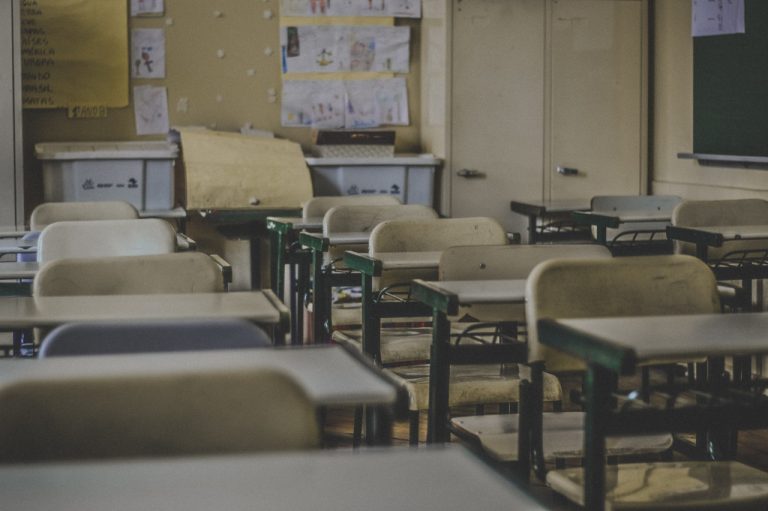SingaporeMotherhood | Parenting
March 2019
Secondary School Streaming No More [Op-ed]

To stream or not to stream, that is the question-of-the-day. For whatever it’s worth, here are my two cents on Singapore’s secondary school streaming system.
Yesterday, I read a Straits Times article on MPs calling for the end of streaming in secondary schools. They say that it has led to Normal-stream students limiting their own potential because of the negative label. I used to tutor both primary school students in the 90s, and I agree – my EM1 and EM2 kids who continued to the Express streams were generally more confident, well-adjusted and happier than those in EM3 who went on to Normal streams.
[banner][/banner]
Yes, there’s the occasional kid who, after being tossed into the Normal (Academic) stream, is extra-motivated to work hard. Some even manage to swim upstream and break into the Express stream. But such cases are the exception, definitely not the norm. And it’s even rarer for those in the Normal (Technical) stream. But why? One word – stigma.
(See also: Preparing Your Child for the DSA? Here’s What You Need to Know)
When it comes to academia, ‘Normal’ isn’t regular, standard, good enough. It’s where the kids who don’t study hard go. Or worse, it’s for the stupid kids, or those who play truant – it’s perceived as where juvenile delinquents originate from. Kids don’t “get into the Normal stream”, they’re “sent there”. Parents warn their kids that if they don’t work hard and do well in the PSLE, they’ll “end up” in the Normal stream. What’s meant to be well-meaning words of motivation also bears the implication that the Normal stream is a bad place to be in. So guess what? If that child is placed in the Normal stream, they begin their secondary school journey believing that they aren’t good enough.
Coincidentally, my team and I had just been discussing classroom culture in Normal vs. Express streams, and consequently, general school culture across so-called elite schools vs. ‘normal’ schools.
A colleague’s son was from a well-known primary school, but is now in a ‘normal’ secondary school in the N(A) stream. He’s still struggling with the culture shock. He comes home with tales of how classmates and even teachers use foul language in class – and repeatedly missing textbooks. He’s targeted by the so-called ‘gangster’ students, and bullied, because he doesn’t fit in.
(See also: How to Recognise Signs of Peer Pressure in Your Child Plus Strategies to Handle It)
I recall how my niece had a similar experience in the mid-2000s. In primary school, she went to the same girls’ mission school I did – it’s a family tradition. She thrived socially but struggled academically, as she was dyslexic. Like my colleague’s son, she was placed in the N(A) stream and went to a secondary school in our neighbourhood. Life did a 180 on her – she thrived academically but struggled socially. “They all speak Chinese!” she complained in bewilderment initially − she was used to a very English-based environment. Thankfully, her outgoing personality won through. She helped her classmates with English and she’s arguably the best Mandarin-speaker in our family!
We will no longer have fishes swimming down three separate streams, but one broad river, with each fish negotiating its own journey.
− Mr Ong Ye Kung, Minister for Education
Breaking news! As I was penning this piece, my editor shared that Minister for Education, Ong Ye Kung, had just announced in Parliament that streaming in secondary schools will be scrapped by 2024. Subject-based banding (SBB) will replace the existing streaming system. This means that students will take a combination of subjects at three levels based on their PSLE scores. A new common national examination and certification will also be replacing the GCE N- and O-Level exams.
To me, however, the biggest change is that schools can choose new ways of organising the classes. No longer will there be Express, N(A) and N(T) classes. No more segregation between ‘good’ students and ‘poor’ students. As one of the schools used as the testing ground for the new system, Boon Lay Secondary has been organising classes by Co-Curricular Activities. Edgefield Secondary implemented classes comprising a mix of students from the three streams. According to Mr Ong, these more ‘inclusive’ styles of organising classes will become the norm.
(See also: Scrapping the PSLE aggregate score — for better or worse?)
Whether these radical changes will improve our education system remains to be seen. But Singapore has a pretty good track record. Personally, I’m optimistic. The changes may not translate into more university undergrads or fewer dropouts, or maybe they will. If it means more confident, well-adjusted and happy children who develop a love for lifelong learning, that’s good enough for me.
Most importantly, we will be taking away the labels that define kids even before they have learnt to define themselves. And that’s a start.
Header image: Source
Feature image: Source
All content from this article, including images, cannot be reproduced without credits or written permission from SingaporeMotherhood.
Follow us on Facebook, Instagram, and Telegram for the latest article and promotion updates.






